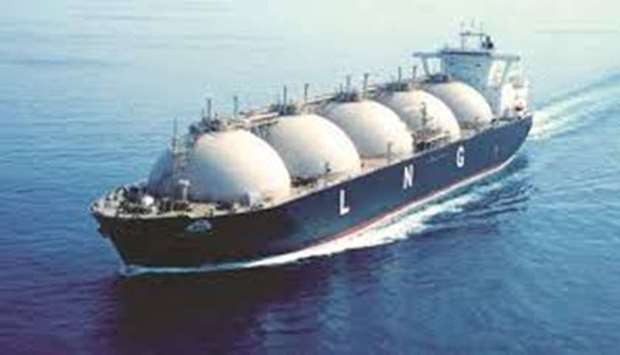Qatar’s gross domestic product is expected to exceed $220bn by 2023, a new report has shown.
By the year-end, Qatar’s GDP will total $172bn, FocusEconomics said in its latest country report.
The country’s GDP per capita in dollar terms will account for $77,422 in 2023 compared with $61,963 by end-2018, it said.
Qatar’s economic growth in terms of nominal GDP will reach 5% in 2023 from 3.1% by the year-end.
The report showed that Qatar’s international reserves will total $35.5bn in 2023 compared with $25.9bn this year.
This, according to FocusEconomics, will cover 8.2 months of imports in place of 9.4 months this year.
Qatar’s fiscal balance (as a percentage of the country’s GDP) will be 4.8% in 2023 compared to -0.3% this year.
The country’s public debt (as a percentage of GDP) is expected to fall to 43.2% in 2023 in place of 53.4% in end-2018.
Qatar’s public debt will fall gradually until 2023, the report said. Next year, it will be 50.6% (as a percentage of the country’s GDP) and 47.5% (2020), 47.5% (2021) and 45.4% (2022).
The current account balance (as a percentage of the country’s GDP) will be 8.2% in 2023 compared with 8.1% in 2018.
Qatar’s merchandise trade balance, FocusEconomics said, will be $57.5bn in 2023. This year, it will account for $50.7bn.
The country’s inflation, the report noted, will be 1.9% in 2023 and this year, it will be a meagre 0.6%.
“The economy is likely to have performed well in the third quarter, after annual growth accelerated in the second quarter,” FocusEconomics said.
The merchandise trade surplus in September grew nearly 26% over the same month a year earlier, despite the blockade on the country by a quartet of Arab nations.
“This was largely due to increased hydrocarbon shipments,” FocusEconomics said.
Earlier this month, the International Monetary Fund noted that (Qatar) government’s fiscal position is improving and that the Qatar Central Bank’s (QCB) FX reserves have increased.
“The following week, the cabinet approved the 2019 draft budget, which includes spending for the 2022 World Cup and is expected to result in the first fiscal surplus in five years,” FocusEconomics noted.
In the coming years, the report said, “the country’s economic growth will be driven by increased oil and gas production, and infrastructure projects related to the 2022 World Cup.”
FocusEconomics panellists forecast growth of 2.8% in 2019, which is unchanged from last month’s projection, and 2.7% in 2020.
The country’s GDP per capita in dollar terms will account for $77,422 in 2023 compared with $61,963 by end-2018, it said.
Qatar’s economic growth in terms of nominal GDP will reach 5% in 2023 from 3.1% by the year-end.
The report showed that Qatar’s international reserves will total $35.5bn in 2023 compared with $25.9bn this year.
This, according to FocusEconomics, will cover 8.2 months of imports in place of 9.4 months this year.
Qatar’s fiscal balance (as a percentage of the country’s GDP) will be 4.8% in 2023 compared to -0.3% this year.
The country’s public debt (as a percentage of GDP) is expected to fall to 43.2% in 2023 in place of 53.4% in end-2018.
Qatar’s public debt will fall gradually until 2023, the report said. Next year, it will be 50.6% (as a percentage of the country’s GDP) and 47.5% (2020), 47.5% (2021) and 45.4% (2022).
The current account balance (as a percentage of the country’s GDP) will be 8.2% in 2023 compared with 8.1% in 2018.
Qatar’s merchandise trade balance, FocusEconomics said, will be $57.5bn in 2023. This year, it will account for $50.7bn.
The country’s inflation, the report noted, will be 1.9% in 2023 and this year, it will be a meagre 0.6%.
“The economy is likely to have performed well in the third quarter, after annual growth accelerated in the second quarter,” FocusEconomics said.
The merchandise trade surplus in September grew nearly 26% over the same month a year earlier, despite the blockade on the country by a quartet of Arab nations.
“This was largely due to increased hydrocarbon shipments,” FocusEconomics said.
Earlier this month, the International Monetary Fund noted that (Qatar) government’s fiscal position is improving and that the Qatar Central Bank’s (QCB) FX reserves have increased.
“The following week, the cabinet approved the 2019 draft budget, which includes spending for the 2022 World Cup and is expected to result in the first fiscal surplus in five years,” FocusEconomics noted.
In the coming years, the report said, “the country’s economic growth will be driven by increased oil and gas production, and infrastructure projects related to the 2022 World Cup.”
FocusEconomics panellists forecast growth of 2.8% in 2019, which is unchanged from last month’s projection, and 2.7% in 2020.


